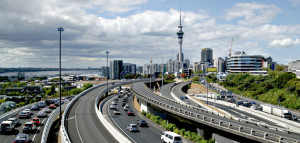New Zealand’s infrastructure, community resilience and how we respond to increasing impacts on our environment will be key areas of focus for local government in the coming three years
Local Government New Zealand has announced its updated policy priorities, which will focus on the major issues New Zealand will face now and into the future, and inform its forthcoming 2017 election manifesto.
Social impacts as a result of an ageing population and inequality, and further addressing economic development and growth across all of New Zealand make up the five priorities.
LGNZ President Lawrence Yule says the priorities are aimed at ensuring New Zealand is prepared for a future that will see many significant changes.
“These major changes include responding to climate change, an ageing population, the impacts of technology on the ways we work, the results of people increasingly moving to cities on both urban and regional areas, and protecting the environment as these shifts come to bear,” Yule explains.
“We are looking at a future quite different from our past and even our present.
“These policy priorities address the areas where local government will have a major role to play to ensure our communities and the country as a whole can thrive.”
LGNZ’s five policy priorities
- Infrastructure: ensuring infrastructure and associated funding mechanisms are in place to allow for growth and maintenance across housing, building, transport, broadband, tourism-related, three waters and flood control infrastructure.
- Risk and resilience: understanding and addressing risks from natural hazards and other events – both for infrastructure and to support resilience in the economy and our communities.
- Environmental: leading and championing policy and working alongside central government and iwi to deal with the increasing impact of environmental issues including climate change, the quality and quantity of New Zealand’s freshwater resources, and biodiversity.
- Social: working alongside central government, iwi and stakeholders to address social issues and needs in our communities including an ageing population, disparity between social groups, housing (including social housing) supply and quality, and community safety.
- Economic: developing a range of policy levers, to address and fund economic development and growth across all of New Zealand.
The local government sector plays an important role in addition to giving citizens a say in how their communities are run, owning a broad range of community assets worth more than $120 billion.
These include 90 per cent of New Zealand’s road network, the bulk of the country’s water and waste water networks, and libraries, recreation and community facilities.
Council expenditure is approximately $8.5 billion, representing approximately 4 per cent of Gross Domestic Product and 11 per cent of all public expenditure.




